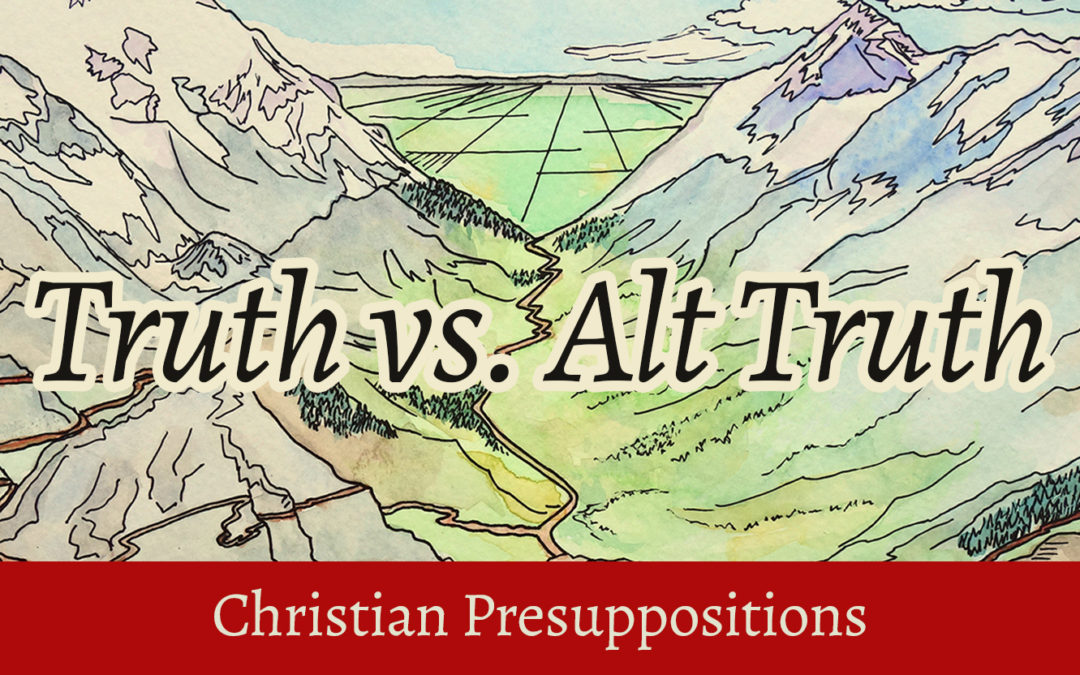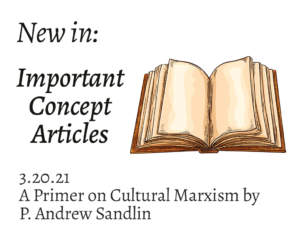From Post 3
We have examined underlying presuppositions behind science with a few references to Postmodern Ideology. Post 4 will consider the Christian faith, a knowledge system committed to critical descriptions of reality but holding a wider scope for what constitutes reality. When we have the presuppositions of science and the Christian faith in hand, we will go on to the more difficult examination of the presuppositions of Postmodern Ideology. What does Postmodern Ideology have in common with the other two systems? What are the points of conflict? Stay tuned.
The absolute presupposition of Christian faith is stated in Genesis 1:1: “In the beginning God. . . .” The same concept is expressed when Moses was tasked with explaining his mission to the Pharaoh. Moses was understandably intimidated. He knew that his gift of speaking was not impressive enough to overcome the contempt he would face. He wanted someone else to take on the job. In his doubts he asked God, “Who shall I say has sent me?” The answer voiced the absolute presupposition of all Judeo-Christian, even Muslim thought: “Tell him that I AM sent you.”
Whereas the presupposition is stated in Genesis 1:1, I am not asserting, in this case, that it is true because the Bible says so, but because it is an absolute presupposition (see Post 2). The presupposition is there for humankind whether or not it was stated in the Bible. The importance of this distinction will become more obvious later.
For believers of monotheistic faiths, God just is! Any true Christian reasoning begins with the presupposition: God. The great reality of the One who identifies Himself as I AM is never proved in the Scriptures; it is presupposed. This Reality is the rock from which Christian reasoning begins: “Since God created the world, then . . .”
How did this presupposition become established in believers’ minds before reasoning even began? We can’t get at this answer in a scientific way specifically, but we can answer in a reasoned way. Just as science presupposes (wittingly or unwittingly) that every event has a cause (with a focus on the natural world), so the human mind distinguishes between what is made by an agent or an Agent, and what is only material cause and effect. “This is different–someone was involved here.” We recognize the necessity of a maker. We reason backward to something we know with greater certainty than we know by our subsequent reasonings that are inferred from this presupposition.
Admittedly, great human effort is made by some to avoid this presupposition. This evasion isn’t easy. Many seek to construct alternate realities. Some build impressive towers of knowledge about origins. However, these paradigms are not accepted by most people in the world. Raising the fact of some people’s non-acceptance is not presented here to show that their view is false. Rather, the point is simply descriptive of realty. “In the beginning God” is simply accepted or not accepted as basic reality: God just is.
Again, this is not an attempt to persuade everyone that God exists. The point is to explain how people think: everyone makes some absolute presuppositions (see Post Two).
God’s Revelation in Creation
So, how do humans know about God the Maker and Sustainer? As they encounter reality, they reason from the presupposition that God is. They come to know by drawing inferences from what they know to what they can logically infer. First, God is known through creation. Since God is the creator of the heavens and the earth, the creature with all the complexity and interactive aspects of being human can best be explained as being in some way created by God. When we reason from what we know to what we seek to learn, we can see that an Intelligent Agent was and is at work (Romans 1:19).
The limited point I want to make here is that Christian faith and science follow a similar path while searching for what is truth. They seek truth as a basis for knowing what is good, what is wise, and what actions to follow.
From the viewpoint of the Christian faith, there is good reason to search for knowledge of the natural world in the same way scientists seek to discover truth about causes. The difference is when searching for knowledge, scientific seekers may limit themselves to the presupposition that every event has a cause. As they reason from this base and examine the natural material world, they will discover how things work. However, they can never discover who made it all or what this Agent’s purposes might have been. They aren’t using sufficient right tools. Christian thinking accepts a wider data field from which to reason.
The larger data field includes God’s purposes. The study of creation began in the Garden of Eden when God led Adam on a “naming” tour. It is not necessary to discuss literary forms here because there are subjects, there are verbs, and things are predicated. Certainly, one of the ways we begin our understanding of the unknown is to name what needs to be repeatedly studied and known. The “named” was to be cultivated and cared for, even ruled over. How can cultivation be effective without a knowledge of soil? Of the seed? Of the role of water? Of sunshine? Of seasons. This study leading to knowledge is not so different than the more narrowly focused search for the cause of events in the natural world that is conducted in a secular mode (without acknowledgement or reference to God as a factor in the search).
This argument that science and religion take a similar approach to gaining knowledge may seem simplistic and naïve. It’s true: whereas there is no inherent logical reason that science and the Christian faith should be in conflict based on their presuppositional frameworks, there are events and subsequent realities that can darken the simple, relatively peaceful and overlapping journeys of science and the Christian faith. Sin comes to mind.
God’s Revelation in the Word
Besides the creation, the other tool needed is the Word. (Sometimes Creation and the Scriptures are referred to as the “two books” of revelation.) The Word, for Christians, is more than the Scripture: it is the revelation of Jesus Christ as the book of Hebrews declares:
Long ago, at many times and in many ways, God spoke to our fathers by the prophets, but in these last days he has spoken to us by his Son, whom he appointed the heir of all things, through whom also he created the world. He is the radiance of the glory of God and the exact imprint of his nature, and he upholds the universe by the word of his power. (Hebrews 1:1-3, ESV)
Here we come to another presupposition: The Word is God’s way of disclosing Himself under conditions of His own choosing. “How do you know” that the Word is God’s way of disclosing Himself? Certainly, a fair question. Unfortunately for my purposes, it would be a rather lengthy diversion to attempt to answer this question here. The answer must wait until discussion of how these systems of knowledge relate to each other, and in what ways they can or cannot peacefully relate.
I must delay explanation of a second basic point about Christian knowing (epistemology) even though I must introduce it here to create sufficient basic understanding. Christians see themselves as citizens of two realms that are both ruled by God. This way of knowing explains why the United States, for example, developed a definite idea of separation of church and state in the Constitution. (See: Home page sidebar: Important Articles).
The biblical account of the Fall (Adam and Eve’s fall into sin) is the occasion for the separation of God’s reign into two realms (The Twofold Kingdom of God).
We will return to this subject again when we point out the dangers of confusion about the twofold realms of God’s reign. The world has known a lot of grief when the church, for example, has tried to use the power of the state to enforce the believer-defined godliness of heart and life upon non-believers who are fellow citizens in Christendom (Church dominance of state). Religious wars have been among the worst in terms of wars of history. We will also return to this theme when we discuss Postmodern Ideological attempts at dominance of church by sociopolitical power moves. There will be dark days ahead unless there is an understanding of this possibility.
Summary
The presuppositions of the knowledge systems of both science and Christianity are seeking an accurate description of reality as a basis for truth in human discourse. The knowledge gained by scientific means is science. The knowledge gained by critical examination of nature and of divine revelation is knowledge of God, theology. The fields of study are overlapping, but different in substantial ways. However, both are seeking knowledge of reality, known and unknown.
Christianity allows a wider view to include the purposes of the Creator as disclosed by Him (as in metaphysics). It also admits that the Creator chose to place human agents in a world of secondary causes that can be studied by themselves. (Who baked the bread? The oven, or the baker?)
Next: The presuppositions of the Postmodern Movement’s belief system.



Thanks Bob. This has been really good!